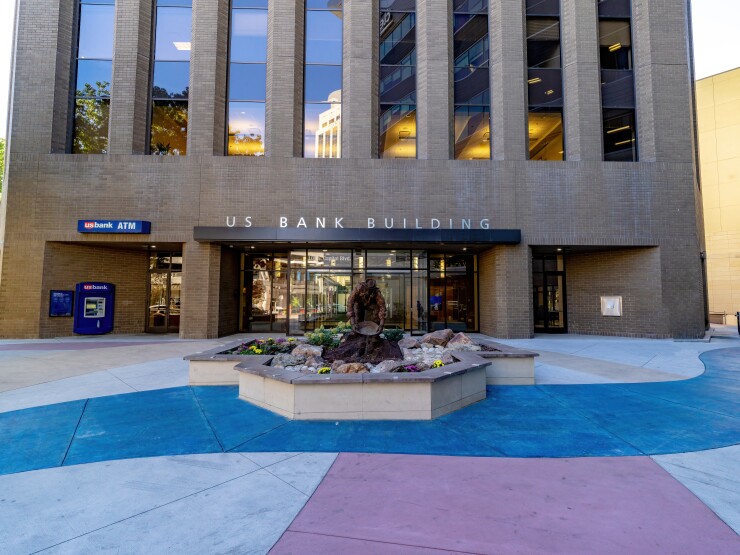
U.S. Bank's merchant acquiring unit Elavon is expanding its partnership with embedded finance fintech Liberis with the launch of Quick Capital, a revenue-based finance product for small businesses.
The Atlanta-based merchant acquirer as of July has been offering working capital loans to its
The private-label partnership is an extension of Elavon's embedded finance capabilities, integrating finance-as-a-service directly into its merchant ecosystem, according to Rob Fairfield, CEO of Liberis.. "It's designed to remove friction from the funding process, offering pre-approved, fast-disbursing capital through a white-label experience within the Elavon portal," Liberis' Fairfield told American Banker in an email.
Elavon and Liberis have been partners in the U.K. since 2021, and expanded their partnership to Ireland in 2022 and Poland in 2024. More than 275,000 U.S.-based merchants will have access to capital under the partnership.
"Quick Capital allows our merchants to access capital through a simple, streamlined process and solutions that work with their cash flow, not against it - especially when opportunities or challenges come up unexpectedly," said Jamie Walker, CEO of Elavon, in a statement.
The deal comes as more payment firms and merchant acquirers home in on small businesses and offer lending solutions to sweeten the deal.
Small businesses can apply for the loans directly through the Elavon portal. Liberis underwrites small businesses by using Elavon's merchant data to pre-populate applications and assess eligibility, with funding decisions based primarily on projected sales and transaction volumes, Liberis' Fairfield said. Repayments are automatically deducted as a fixed percentage of daily card transactions.
"For more complex cases, we have a team of dedicated underwriters who conduct deeper assessments," Fairfield said. "Where applicable, we also rely on open banking data alongside Elavon's merchant data to gain a more granular view of a small business's day-to-day cash flow."
Funding in the U.S. ranges from $1,000 to $500,000. In the U.K. the average deal size is around 31,000 pounds ($41,800).
Offering working capital loans is a differentiator for merchant acquirers even if it falls short of being tablestakes, said Aaron McPherson, principal of AFM Consulting.
"Small business is an
Most merchant acquirers directly or through partners offer their SMB merchants some form of credit, and have been increasingly offering SMB merchants retail credit for their customers as well, according to Eric Grover, principal at Intrepid Ventures.
"That adds enormous value," Gover told American Banker.
"Acquirers have their finger on the pulse of their merchants' financial health. They see merchants' sales and trends real time and therefore are in a position to quickly extend credit," he said. "Even though it's often pricier than what the merchant could get by shopping banks for a loan, speed and convenience are dispositive. For acquirers, extending credit generates incremental revenue and reduces merchant attrition."





